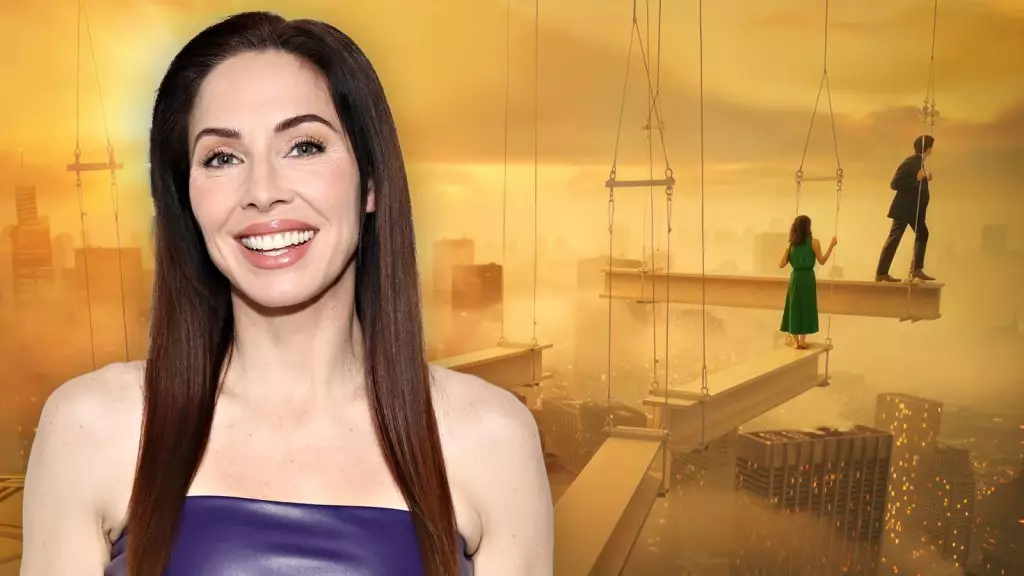In the realm of film auditions, not all experiences are created equal, and Whitney Cummings’ recent recount of her audition for Francis Ford Coppola’s ambitious project, *Megalopolis*, serves as a stark illustration of this reality. The distinguished comedian and host of Max’s *Fast Friends* candidly disclosed her feelings of embarrassment and discomfort during what she describes as a “horror” experience on the *Good For You* podcast. For Cummings, the audition was not just an opportunity but also a moment that quickly turned into a core trauma.
Cummings approached the audition with the rigor that aspiring actors often employ—she memorized her lines and prepared meticulously. Yet, as she stepped into the audition room, the energy felt off. The absence of the usual friendly banter one might expect during auditions contributed to a palpable sense of discomfort. “Everyone is so quiet,” she noted, contrasting this with the usual friendly environment that often accompanies creative endeavors.
What unfolded was far from a typical audition. Instead of performing a well-rehearsed scene, Cummings found herself facing a barrage of unexpected prompts from Coppola, who famously directed iconic films yet opted for an unconventional approach during the casting process. Cummings described how they were asked to improvise scenes, which included heartfelt farewells and confrontations delivered with different accents. The experience felt surreal to her, and at one point, she suspected she was being pranked, likening it to her past participation in *Punk’d*.
“I started glazing over,” she recalled, capturing the essence of her disassociation during the demanding task. For many artists, the ability to improvise is crucial, but the stakes and pressure of auditioning for a living legend like Coppola intensified the situation. It became painfully clear that she was performing in what felt like a void—an expectation without any clear direction or support, leading her to question the very nature of her audition experience.
Cummings openly articulated the humiliation she felt by the end of what many would consider a critical moment in an actor’s career. The conclusion of the audition was marked by an unexpected gesture from Coppola, who handed Cummings a signed copy of his new book and a bottle of his celebrated wine. The entire experience felt confounding to her, mired in embarrassment and the stark realization that this encounter would not be one she would cherish in her professional portfolio.
What is intriguing about Cummings’ experience is how it sheds light on the often unglamorous reality of the audition process itself. While many envision walking into a room filled with encouragement and creativity, the truth is that many actors face moments of deep vulnerability and humiliation, often in unexpected ways. Cummings’ reflections act as a reminder of the emotional wear and tear involved in navigating the entertainment industry.
Despite Cummings’ uncomfortable and bewildering audition ordeal, *Megalopolis* found its way to the silver screen, ultimately grossing over $13 million worldwide against a hefty production budget of $120 million. With a star-studded cast including Adam Driver, Aubrey Plaza, and Laurence Fishburne, the film sparked interest and conversation, highlighting the ambitious nature of Coppola’s vision.
In analyzing Cummings’ experience, it becomes evident that the artistic journey is not purely about accolades but also fraught with trials that test resilience and artistic integrity. While *Megalopolis* may have delivered its share of box office chatter, for Cummings, the haunting memories of her audition serve as a testament to the psychological and emotional challenges artists face. Her story underscores that behind every successful project lies a myriad of personal triumphs and trials, with Cummings’ candid sharing of her experience contributing a crucial narrative to the broader dialogue about auditions in Hollywood.

